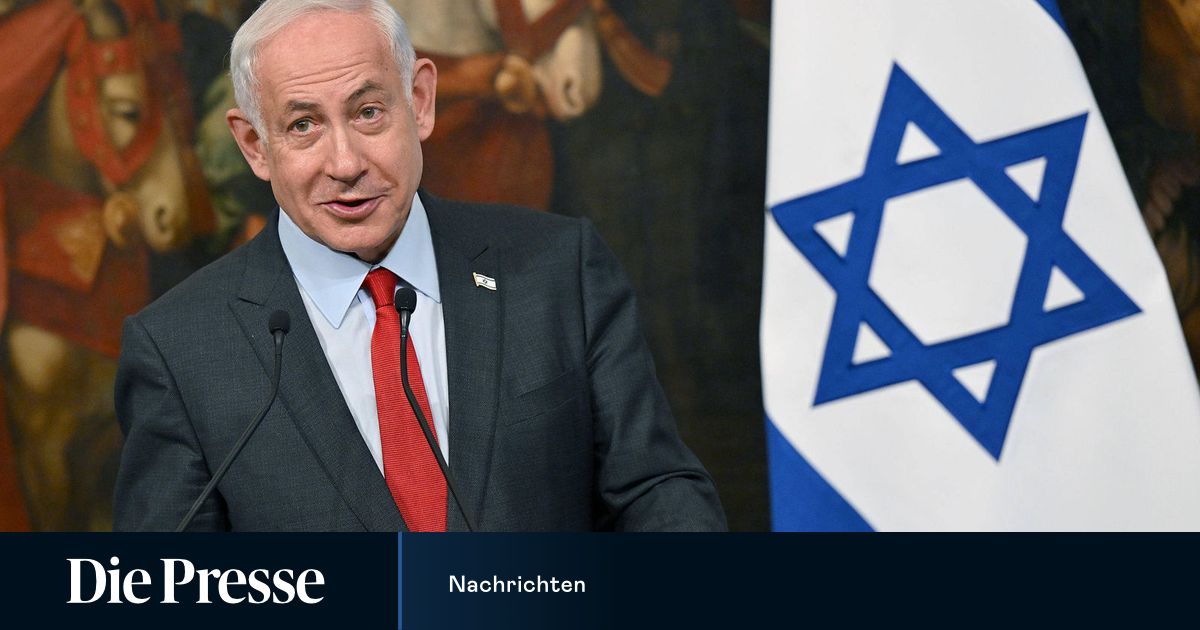More than 3,000 police officers will guarantee the visit, which will be accompanied by several manifestations.
Accompanied by protests, German Chancellor Olaf Scholz will receive Israeli Prime Minister Benjamin Netanyahu in Berlin on Thursday. The two will first visit the Holocaust memorial at Grunewald railway station, from where some 10,000 Jews were taken to Nazi labor, concentration and extermination camps on Reichsbahn trains in 1941 and 1942. press at the Chancellery. Netanyahu will later meet Federal President Frank-Walter Steinmeier at Bellevue Palace.
More than 3,000 police officers will guarantee the visit, which will be accompanied by several manifestations. They are mainly directed against judicial reform planned by Netanyahu’s right-wing religious government, against which large-scale demonstrations have been taking place regularly in Israel for weeks. The Israeli parliament must be able to overrule the highest court’s decisions. Critics see this as a threat to the separation of powers. The biggest rally is recorded with 1000 participants at the Brandenburg Gate in Berlin. The radical left scene also mobilized against the visit.
‘Rule of law restructuring’ in Israel raises concerns
A few days ago, Federal President Steinmeier criticized the reform of the Judiciary in an extraordinarily clear way. The government’s planned “restructuring of the rule of law” in Israel is causing concern – “precisely because we Germans have always looked with great admiration at the strong and vibrant rule of law in Israel”, he said last Friday in a reception in Berlin. Steinmeier emphasized that he was in regular contact with his counterpart Izchak Herzog and relied on his “balanced voice” in the Israeli debate.
Shortly before Netanyahu’s departure, Herzog proposed a compromise in the bitter dispute on Wednesday night, which is expected to strengthen parliament and government and ensure an independent judiciary. While the opposition signaled willingness to talk, Netanyahu rejected the move. It only consolidates the current situation and does not bring any compensation, he said after media reports. Herzog said he has spoken to thousands of people on both sides in recent weeks. “I’ve heard real hate,” he warned. “Anyone who believes that a true fratricidal war is a limit that we will not reach has no idea. We are at the limit.”
How does Scholz react?
It is eagerly awaited how Scholz will handle the renovation during his visit. About 1,000 Israeli artists, writers and academics wrote to the German ambassador demanding a refusal. The Israeli newspaper Haaretz reported that they wrote that Israel was in the worst crisis in its history and was “on the way from a vibrant democracy to a theocratic dictatorship”.
Netanyahu left for Berlin several hours late on Wednesday night and will leave earlier than planned on Thursday night. According to Israeli media reports, a bomb blast on Monday in northern Israel is believed to be the reason. A news blackout had been imposed on the funds. For Netanyahu, the focus of the trip is to promote an alliance against Iran. Before leaving, his office said the prime minister wanted to emphasize in Berlin “that Iran must be prevented from obtaining nuclear weapons”.
Since taking office in November, Netanyahu has visited neighboring Jordan, as well as France and Italy. Netanyahu has yet to receive an invitation from the United States – Israel’s traditionally closest ally. This is considered a sign that the US government is not happy with the new government’s policies.
(APA/dpa)

